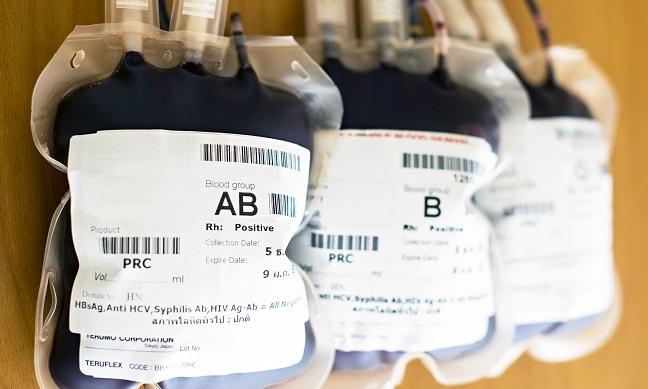VTE Risk Higher in Surgical Patients Who Get Transfusions
Caution is needed when considering red blood cell transfusions, and a “clear, justifiable reason” should be present, one researcher says.

Patients undergoing various types of surgery, including cardiothoracic and vascular operations, are at greater risk for postoperative venous thromboembolism (VTE) when they receive red blood cell transfusions before, during, or after the procedure, a large registry study indicates.
After accounting for various potential confounders, transfusion was associated with roughly twice the likelihood of developing VTE that required some type of intervention within 30 days of the operation (adjusted OR 2.1; 95% CI 2.0-2.3), according to researchers led by Ruchika Goel, MD (NewYork-Presbyterian/Weill Cornell Medical Center, New York, NY).
There was a dose-response effect, and the relationship strengthened along with a greater number of intra- or postoperative transfusions (P < 0.001 for trend), they report in a study published online June 13, 2018, ahead of print in JAMA Surgery.
Goel told TCTMD that the findings, which should be confirmed in future prospective studies, underscore the need to be cautious when deciding to use red blood cell transfusions. “Perioperatively, if you have to do transfusions, you should have a clear, justifiable reason,” she said.
Contrary to a belief that native red blood cells are “innocent bystanders” when it comes to clot formation, animal and preclinical studies have suggested that they do, in fact, play a role in accelerating clot formation, according to Goel.
Some prior clinical studies have supported the link between red blood cell transfusions and VTE, but they have had relatively narrow focuses.
Goel and colleagues examined whether a similar relationship would be seen in a larger cohort of patients undergoing various types of surgery, who are already at heightened risk of VTE. The analysis included 750,937 patients (56.8% women; median age 58) who underwent a surgical procedure in 2014 and were included in the American College of Surgeons National Surgical Quality Improvement Program database. Overall, 6.3% received at least one perioperative red blood cell transfusion (from 72 hours before to 72 hours after the operation). Postoperative VTE within 30 days (the primary outcome) was seen in 0.8%.
The association between transfusions and VTE was seen for both deep vein thrombosis (adjusted OR 2.2; 95% CI 2.1-2.4) and pulmonary embolism (adjusted OR 1.9; 95% CI 1.7-2.1). When looking at the timing of transfusions, similar VTE risks were observed in patients who received them preoperatively only, intra- or postoperatively only, or both preoperatively and intra- or postoperatively.
The highest OR was seen for patients who received three or more intra- or postoperative transfusions (adjusted OR 4.5; 95% CI 1.0-19.4).
In a subgroup analysis, the relationship between transfusions and VTE was consistent across all surgical subspecialties evaluated, including cardiothoracic surgery (adjusted OR 1.8; 95% CI 1.2-2.5) and vascular surgery (adjusted OR 2.5; 95% CI 2.0-3.2).
Goel told TCTMD it’s hard to pinpoint a single mechanism that might explain this association, but said that it likely has to do with “modulation of the inflammatory cascade” among a group of patients who are already in a situation associated with increased inflammation.
She added, however, that exact mechanistic pathways cannot be determined from these findings, which should be considered hypothesis-generating.
What can be taken from the findings now, Goel said, is that red blood cell transfusions should be used with caution. “Before the surgeon or the anesthesiologist makes a decision, they really need to be sure that . . . the patient needs to be transfused.”
And future studies, she added, could look into whether enhanced VTE prophylaxis would be useful for patients who have received red blood cell transfusions.
Todd Neale is the Associate News Editor for TCTMD and a Senior Medical Journalist. He got his start in journalism at …
Read Full BioSources
Goel R, Patel EU, Cushing MM, et al. Association of perioperative red blood cell transfusions with venous thromboembolism in a North American registry. JAMA Surg. 2018;Epub ahead of print.
Disclosures
- The study was supported in part by grants from the National Institutes of Health and the Clinical and Translational Research services from the Department of Pathology at Weill Cornell Medical College.
- Goel reports no relevant conflicts of interest.


Comments